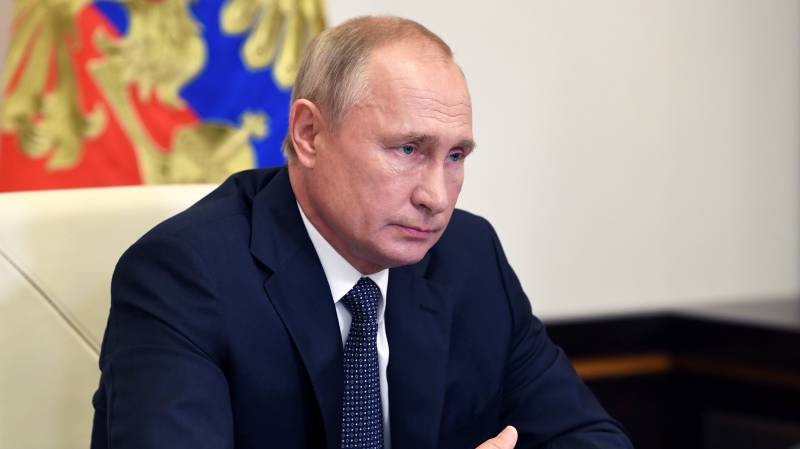Putin's unexpected dilemma: What to do in Belarus?

Stay tuned with 24 News HD Android App

The eruption of anti-government protests in Belarus has presented an unexpected dilemma for President Vladimir Putin, with the Kremlin strongman cautiously weighing his options at a sensitive moment for Russia.
The protests in Belarus against the regime of President Alexander Lukashenko after disputed elections have yet to show any anti-Russian characteristic, which analysts say is a key difference from the uprising that swept the pro-Moscow Ukrainian government from power in 2014.
Putin has several tactical options and while the use of force -- in a re-run of the scenario where Russian annexed Crimea from Ukraine in 2014 and backed separatists in the east of the country -- cannot be ruled out, it remains a last resort.
The protest movement has come at an awkward time for the Kremlin with Putin's own popularity sharply eroded from highs seen after the seizure of Crimea and hugely unusual protests shaking the Far East of the country.
"The Russians have not been sure how to react to this (Belarus)," said Gustav Gressel, Senior Policy Fellow at the European Council on Foreign Relations.
"They came to the conclusion that Lukashenko is probably a dead end but for them it's embarrassing if it's done from the streets, so they need to cast this in a process to have control over it," he told AFP.
He said the situation was tricky for Putin, with Lukashenko by no means an admired figure in the Kremlin and Russia also not an "object of hate" in Belarus as it became for many in Ukraine.
Meanwhile the protest movement is itself complex, without any clear leader.
Its figurehead, defeated election candidate Svetlana Tikhanovskaya, is now in exile in Lithuania and seeking to unite disparate groups from factory workers to tech-savvy young people.
"I think they are looking for ways to manage this... (Lukashenko) is someone who can be replaced without the Kremlin losing too much face; he is not the poster boy of Russian-Belarusian friendship anymore," Gressel added.
'Ready to act'
Analysts warn against making comparisons between Ukraine and Belarus, a quite different nation from its southern neighbour which has taken a pro-Western tilt since its 2014 uprising.
Russian is the main language almost everywhere in Belarus, attitudes towards Moscow are more positive and both sides share a determination to celebrate the heroism of Soviet troops in World War II -- a conflict that cost the lives of an estimated one-quarter of Belarus' population.
"Russia is acting very carefully. The protests are not anti-Russian and there is no anti-Russian mood in Belarusian society and Russia does not want to change this," said Anna Maria Dyner, analyst at the Polish Institute for International Affairs (PISM).
She said if a new figure emerged who would keep Belarus in its political union with Russia and the regional CSTO security alliance, this could prove acceptable to Moscow.
"Russia does not want to engage militarily," she said, adding that Putin had likely "had enough" of Lukashenko.
But she added: "I am sure Russia is ready to act on every kind of option, including the military one although this would be the most costly one for Russia."
Lukashenko and Putin have repeatedly talked by telephone over the last week, with the Belarusian strongman claiming that the Russian leader had offered full assistance to ensure security.
'Sense of uncertainty'
But Nigel Gould-Davies, a former British ambassador to Belarus and senior fellow at the International Institute for Strategic Studies (IISS), said Putin "managed to have a terrible relationship" with Lukashenko.
"They're no longer wedded to Lukashenko, they're feeling their way in this situation," he said, while adding Moscow was "not passive at all".
Stephen Sestanovich, senior fellow at the Washington-based Council on Foreign Relations said Moscow had good contacts with the elite in Belarus, which in turn benefits from good relations with its neighbour.
"These connections to and favourable attitudes within the Belarusian elite give Putin many ways to foster a transition away from Lukashenko," he said.
Yet Putin would not want an uprising to oust Lukashenko from power on its own, at a time that he has tolerated anti-Kremlin protests in the Russian Far Eastern city of Khabarovsk.
"Obviously, a popular revolution in Belarus is not something Vladimir Putin would like to see having a spill-off effect in Russia," Katia Glod, non-resident fellow at the Center for European Policy Analysis (CEPA) told AFP.
